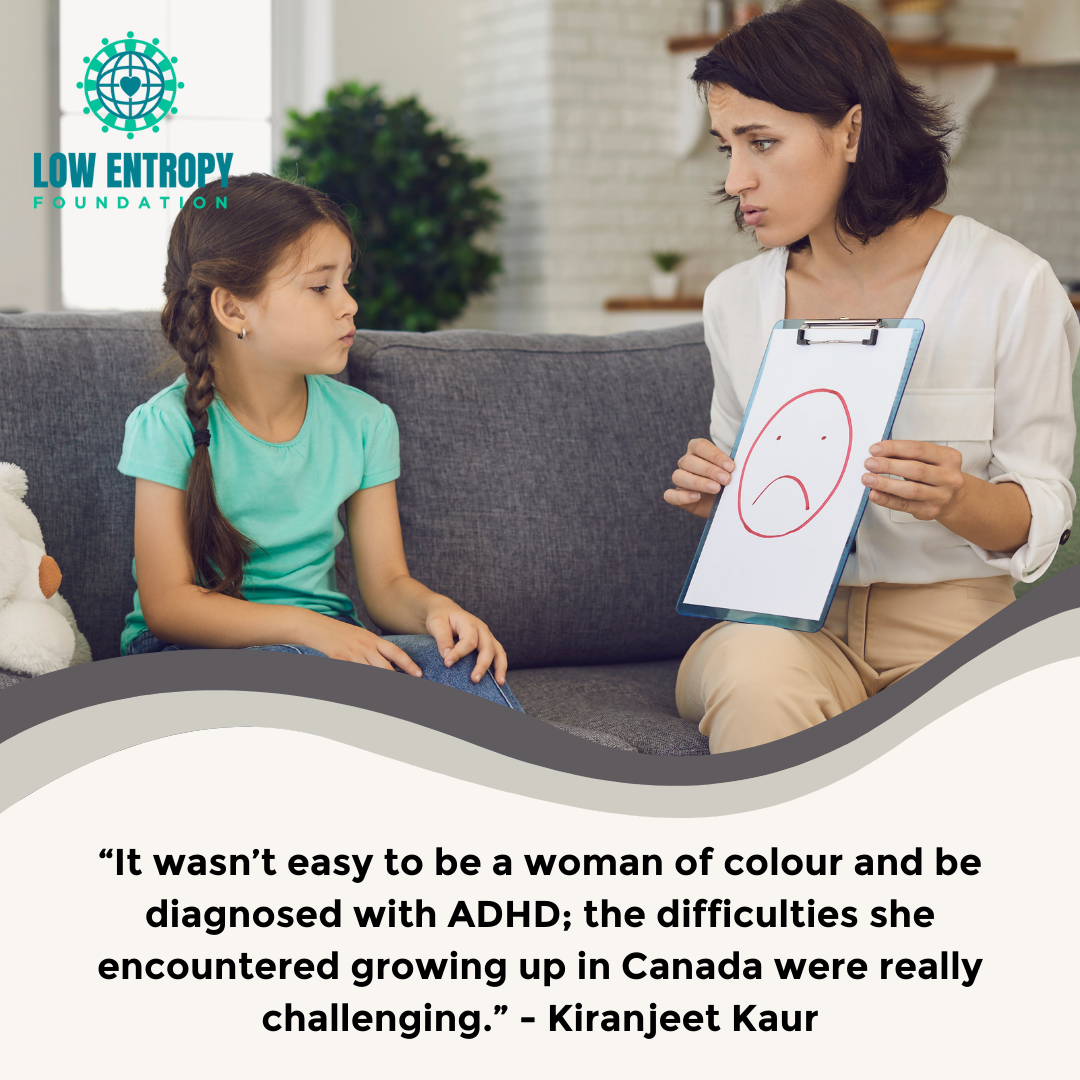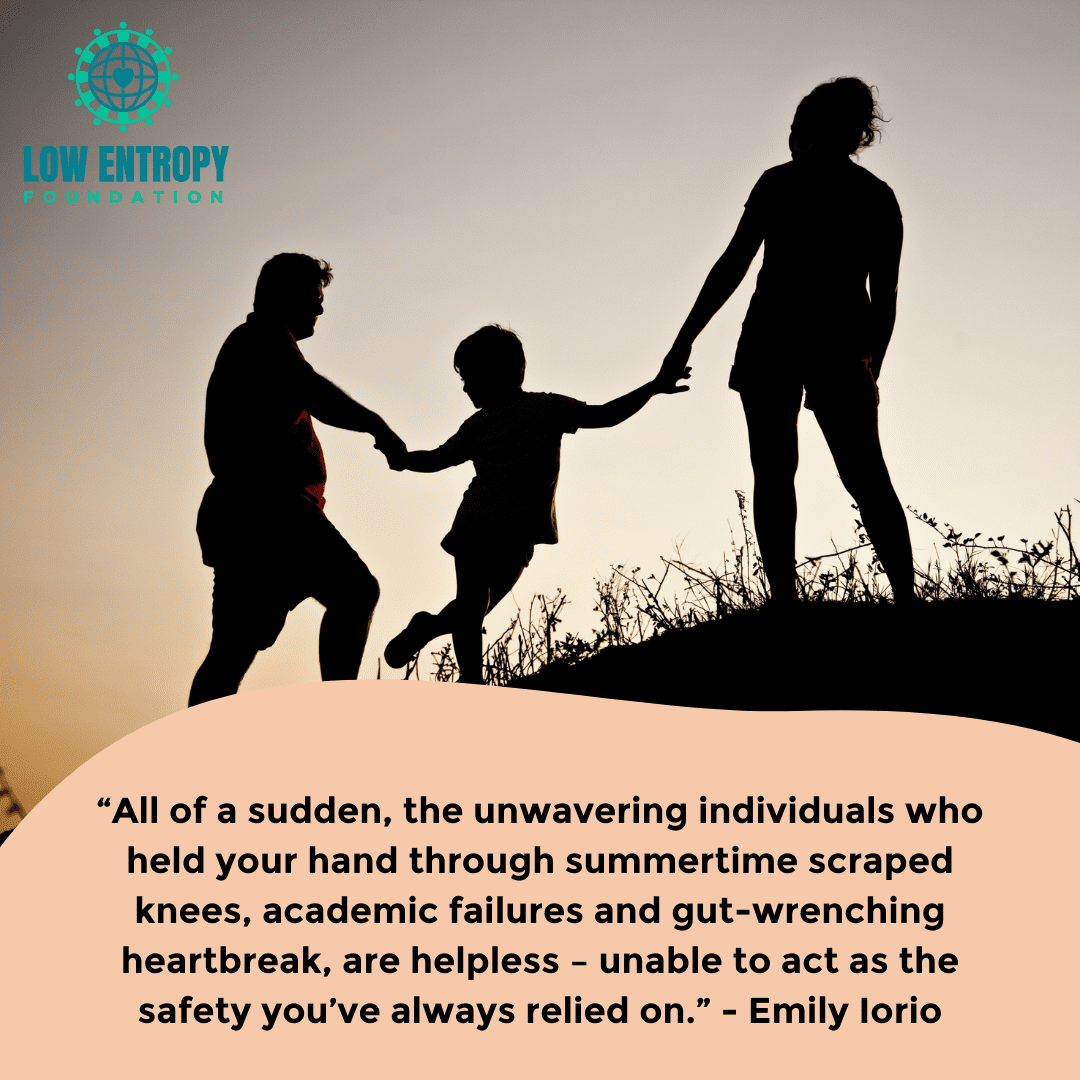Kiranjeet Kaur (she/her/hers), Low Entropy Volunteer Writer
The simplest way to describe coping strategies for ADHD is to compare them to putting on a pair of brain-protecting eyeglasses. When my child was diagnosed with ADHD, I was fortunate enough to be able to access assistance. Growing up, I remember one of my friends exhibiting symptoms, and with her permission, I’d like to share her experience.
It wasn’t easy to be a woman of colour and be diagnosed with ADHD; the difficulties she encountered growing up in Canada were really challenging. This was especially true because she had immigrant parents who didn’t understand what ADHD was, and refused to recognise or support her when she needed it. They considered ADHD to be a stigma or condition that they needed to conceal.
Coming from an Indian society where women were expected to be experts in cooking and social skills, she lacked both. If she didn’t go to social gatherings, people would think she was arrogant. She was under pressure to perform to high standards, yet she failed every time.
She grew up in a brown household, and when she was diagnosed with ADHD in elementary school, her father was upset. He didn’t believe it at first and blamed the school system. Her journey for support began at Renfrew Elementary School in Calgary. Her class consisted of a total of six students, and she was taught the school curriculum in a manner that accommodated her ADHD. After spending a year there she was transferred to a regular junior high school, where she was frequently taken out of class to study subjects using a different method. Her father was always trying to hide her ADHD, but he never realised that you can’t conceal it. She was born with it and required assistance in determining the best techniques to help her.
When she was in fifth grade, her father attended a parent-teacher interview, and she was thrilled because her teacher had so many positive things to say about her. For the first time, she felt someone was focused on her strengths, and she hoped her father would be pleased. Halfway through the interview, her father expressed dissatisfaction with the educational system and requested that the teacher ask her if she understood her left and right. She didn’t know, and tears streamed down her cheeks as she wanted to vanish into thin air. She went home with her head down, convinced that she would always be a failure and that she would never be good enough. The next day, the teacher sat down with her and held her hand, tracing the letter L on her left hand, and said, “My child, here is your left,” since she knew my friend learned best using visual aids.
She will never forget how one of her high school teachers pointed out to her that on all of her examinations she would always get the difficult questions right and the simple questions wrong. The teacher stated that while she would often mark the first page incorrect, she was impressed with how the most difficult questions were successfully completed on the following ones. She began to see this in other parts of her life as well: she could prepare foods that were tough for the typical person but couldn’t brew a simple cup of tea.
Her dad refused to enrol her in the only high school that provided assistance to students with ADHD. She ended up attending a nearby, academically rigorous high school. Knowing her condition, she thought she would excel at a vocational school, but her father was pushing her to become a nurse. She failed two university classes in her first year after taking math grade 12 three times. It was a mental, emotional, financial and academic battle for her.
If she didn’t get into nursing school, her father threatened to send her to India for an arranged marriage. She was afraid, and she felt deep down that she wasn’t prepared. To save her life, she forged an entrance letter from the institution where she was studying nursing. Her father was overjoyed and her heart was broken since she didn’t like to lie, but she wasn’t ready for marriage. Her parents assumed she was enrolled in a nursing degree, but she was actually taking psychology and sociology courses. Her father was outraged when she told him she wanted to transfer to a technical college, and she was married the next year in India. All of this occurred as a result of her parents not accepting her ADHD diagnosis.
Fortunately, today she is married, has two great children, and has received ADHD treatment. After receiving the appropriate assistance, she saw that she was able to return to school and hold a steady job for a longer period of time. With her brain-protecting glasses, she was able to absorb and remember material in ways that were beneficial to her. ADHD should not be stigmatized, and is not something to be embarrassed about. We all learn in a variety of ways.
—
Kiranjeet Kaur is married and a mother of two teenagers. She grew up in Alberta and British Columbia after being born in Castlegar, BC. Her academic institutions included Mount Royal University, the University of Calgary and Bow Valley College.








